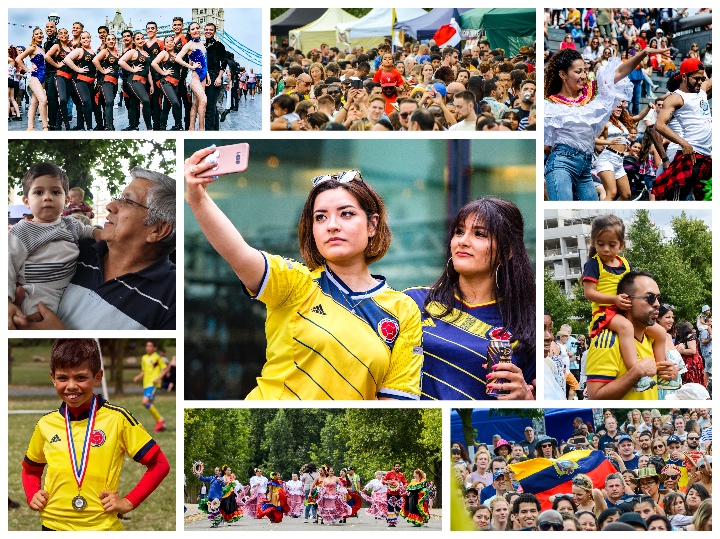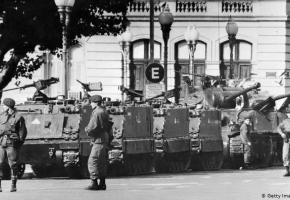Following the French Revolution of 1789, the old world order seemed to be crumbling. Latin American revolutionaries were inspired by the success of the French Revolution and the U.S Declaration of Independence, and wanted to see republicanism and self-determination implemented in new, free, Latin American nation states.
Already being persecuted by the Spanish, the first Latin American visitors to London were a generation of upstarts, exiled intellectuals and politicians who came to the English capital in the late 18th century, in the hope of raising money and support for the Wars of Independence against the Spanish.
Rebels and Revolutionaries - Latinos in London 18th century style
The Venezuelan revolutionary Francisco de Miranda married an Englishwoman, Sarah Andrews, and they lived together on London’s Grafton Street for several years during the 1780s. Miranda’s successor, and the eventual liberator of Bolivia, Colombia, Ecuador, Panama and Venezuela, Simón Bolívar, lived in Marylebone for six months in 1810 in an attempt to obtain British protection against a possible French attack on Venezuela.
Likewise, the liberators of Argentina and Chile, José de San Martín and Bernardo O’Higgins, both spent time in London, meeting other like-minded Latin Americans to discuss revolutionary ideas. The Spanish were definitely the no. 1 enemy for Latin American revolutionaries and so Britain 'came to be more closely associated with the independence movements than any other world power." Former British Foreign Secretary William Hague said in a lecture on the UK’s relationship with Latin America. "London was a centre of activity for its leaders and supporters.’
Miranda himself had been actively involved in the French Revolution and served as a general in the French Revolutionary Army. The revolution turned on him, however, and he was imprisoned during Bonaparte's Reign of Terror. He survived, but was forced to flee France for England in 1798. It has also been thought that Miranda, whilst in London, founded the Lautaro Lodge, a highly secretive Masonic lodge dedicated to the struggle for Latin American independence, of which both San Martín and O’Higgins were leading members. Recent research suggests that Miranda may not have been a founder, but the lodge was active in London, and this activity was encouraged by the British governments of the day.
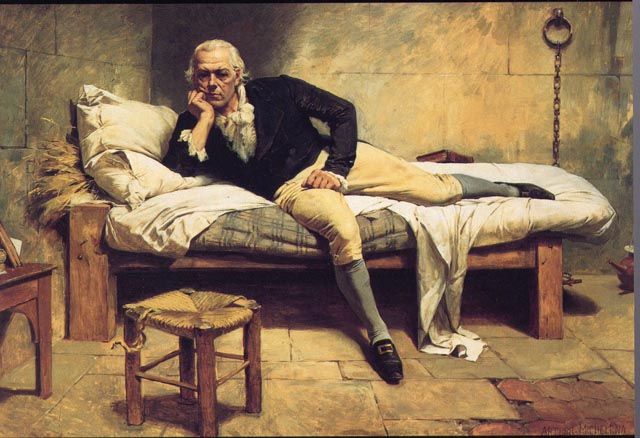
The Brits in Latin America - White-gloved Pirates
While the Brits wanted to help these revolutionaries against the Spaniards, Britain was no disinterested party. With the loss of Britain’s American colonies in 1776, it was in Britain's interests to Latin America get rid of the Spanish. Successive British governments perceived the decay of the Spanish Empire and saw their chance – not just to expand British markets, but also to curb Napoleon Bonaparte’s expansion of the First French Empire. Extending British influence over Latin America was also an opportunity to restore some national pride following the loss of Britain’s own American colonies.
In his famous text Las Venas Abiertas de América Latina (The Open Veins of Latin America), the Uruguayan author Eduardo Galeano is highly critical of British involvement with Latin America during this period. According to Galeano, the British made the fledgling national economies of the new Latin American states dependent on loans from British banks, flooded Latin American markets with British products, and exported valuable raw materials - such as sodium nitrate, copper, coffee and sugar – at knockdown prices.
While the new Latin American nations had achieved political independence from the Spanish, their national economies remained stunted and dependent on British investment for years to come.
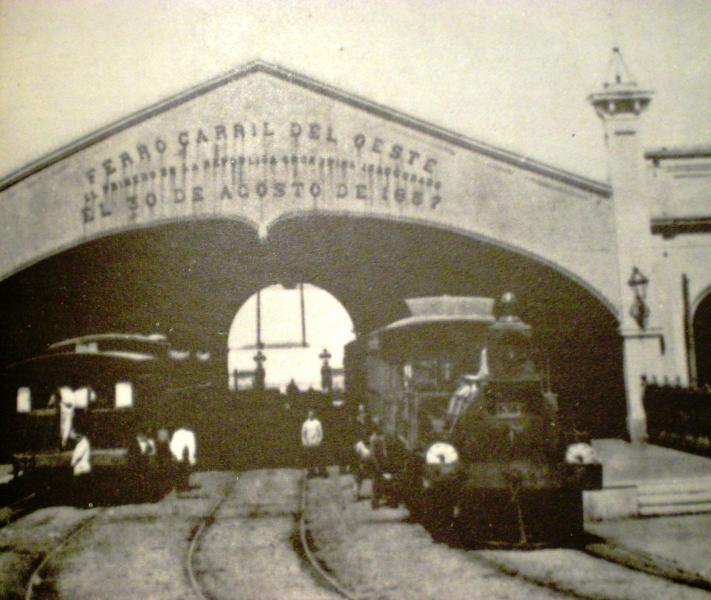
The second wave of Revolutionaries
After the revolutionaries, the first significant wave of Latin American immigration did not arrive on British shores for more than 150 years afterwards, in the 1970s - when military dictatorships were sweeping through Chile, Brazil, Argentina and then Central America crushing left-wing activists inspired by the Cuban Revolution of 1959.
As student activists fled persecution, The Immigration Act of 1971 made it possible for Latin Americans to be granted work permits in the UK, and throughout the decade thousands of Latin American refugees arrived, most of them fleeing dictatorships across the continent. Around 2500 Chileans came to the UK in the early 1970s, most of whom settled in London, aswell as thousands of Argentines. In the 1980s Colombians started fleeing the civil war, between left wing guerrilla groups, the FARC being the most well known, formed after many democratically elected left wing politicians were assassinated.
Many arrivals were highly educated professionals for whom it was too dangerous to remain in their own country for political reasons. But brought had skills that were revolutionary in other ways. When Osvaldo Ardiles and Ricky Villa arrived at Tottenham Hotspurs in 1979, hot off their World Cup victory, the Argentines were the first Latin Americans to play in English Football Premier League. Not only did they win the FA Cup for Spurs in 1981 (which the club has not managed to do ever since) they brought a new way of playing football, personified by Ricky's goald Spurs’ FA cup final victory over Man City, in which Villa scored the winning goal. British football fans fell in love with their flair and they paved the way for the next generation of Latin American footballers in the English Premier League.
It is estimated that the UK now has the world’s third biggest Colombian diaspora, after the US and Spain. Acccording to the Foreign and Commonwealth Office, Britain’s Latin American community amounts to 900,000 and is mostly centred in London. Additionally, Canning House estimates there to be 100,000 Spanish residents in the UK, with 100,000 visitors passing through London annually.
The figures above are also likely to be under-estimates due to the number of undocumented migrants living and working invisibly within the UK. There is also a further problem in obtaining accurate migration figures, because the word Latin American does not appear on official forms. On UK government documentation ‘Latin American’ is not given as an ethnic group. Latin Americans find themselves having to tick the box marked simply ‘Other.’ This led to the creation of the Latin American Recognition Campaign UK (LARC), a London based organisation which seeks to remedy this lack of foresight on the part of the British government.
Today, political persecution is less the main motivation for Latin American migration here: the vast majority of today’s migrants come from Latin America fleeing poverty and unemployment rather than the security forces of their respective countries. But the demographic of these immigrants has changed: before Venezuelans needed no Visa to come, now it is Colombians who need no Visa and can come and go freely.
Latinos Rule UK
What most agree on is that number of people of Latin American descent in the UK is over a million. The London borough of Southwark has the highest concentration of Latin Americans in the UK, along with Lambeth, Stockwell, and Brixton in South London and Holloway, Seven Sisters and Finsbury Park in the north of the city. The UK is now home to the third-largest Latin American population in Europe after Spain and Italy – larger than Portugal, despite its colonial involvement with Brazil.
Spain is still the most popular destination for Latin Americans coming to Europe. However, a growing number of Latin Americans arrive in Spain only to leave disillusioned, unable to find well paid work but often also because racism. Despite its colonial past, the UK is seen by many as a country in which human rights are respected and the rule of law upheld. London is seen as an open, cosmopolitan city in which it is possible to find relatively well-paid work.
Still, an immigrant is an immigrant. Some Latin American professionals occupy well-paid positions in academia, business, sport and the culture industry, but much greater numbers are engaged in tough, low-wage work, predominantly in cleaning the offices, hotels, schools and other public institutions of the capital. They also work in care and hospitality. Some of these cleaners, carers and kitchen porters hold universityqualifications, but without work permits cleaning is what they have to accept, with no guarantee that its only in the short term
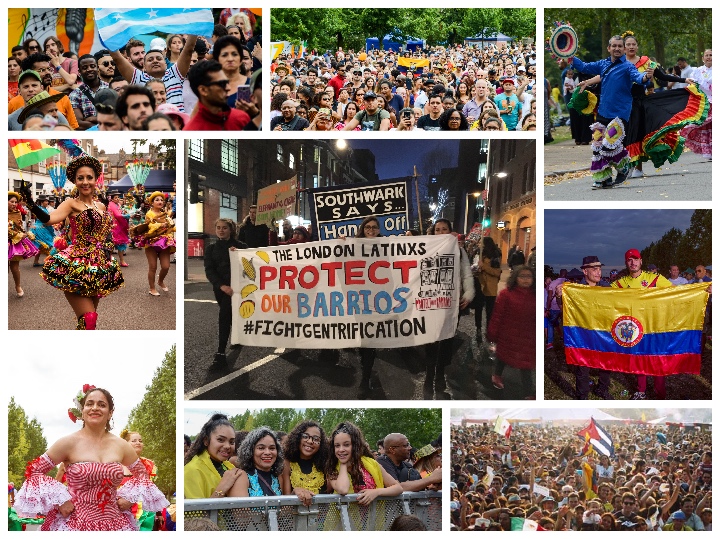
Changes and Challenges
The Latin American community is one of the UK's most creative, entrepreneurial, talented and hard-working, and also one of its most underrepresented and invisible. Despite the massive contribution of Latinos to culture, the economy and society, Latinos still encounter massive obstacles. While being a Latino in the UK may not carry the same prejudices as it does in Spain (the colonial motherland) in some ways the fact that the UK has little colonial history in Latin America means we are even more invisible. There is still so much ignorance in the UK about Latin culture, and Latinos still struggle to be heard and impose our own narrative. In the media, there is much frustration of having UK pundits - mainly old white men - still controlling the narrative of Latin music and culture and defining what or who was ‘good’ about Latin music, without having the lived experience and understanding of it.
Latin Americans are also still invisible on most official forms and gentrification has for years threatened to undo the communities they've built in areas like Elephant & Castle and Seven Sisters. The challenges have not been helped by divisions within the community. There are generational differences, between the first generation of Latinos and new arrivals: the early Latin American arrivals in the 1970s worked for years to stake their claim, creating a softer landing for more recent migrants of the 21st century. New arrivals had a community to receive them and guide them, yet some community members say the new, often younger, immigrants are reluctant to put in the hard work, as did earlier migrants.
“Though we are all Latin American, our experience as immigrants has been very different," says César, a Colombian who has lived in London for 20 years. Cesar notes how much harder it was for early Latin American migrants who arrived without documentation, as opposed to newer migrants who arrive with documentation allowing them access to better jobs. "Those [Latin Americans] who have come through Spain, have a completely different expectation. The way they do things and express themselves is completely different.”
Santiago, a Colombian Uber driver who spent 10 years in Spain before arriving in the UK, confirms. “There is a different mentality. I know Colombians who been working here 30 years cleaning buildings. That’s so depressing. I just couldn’t do it.”
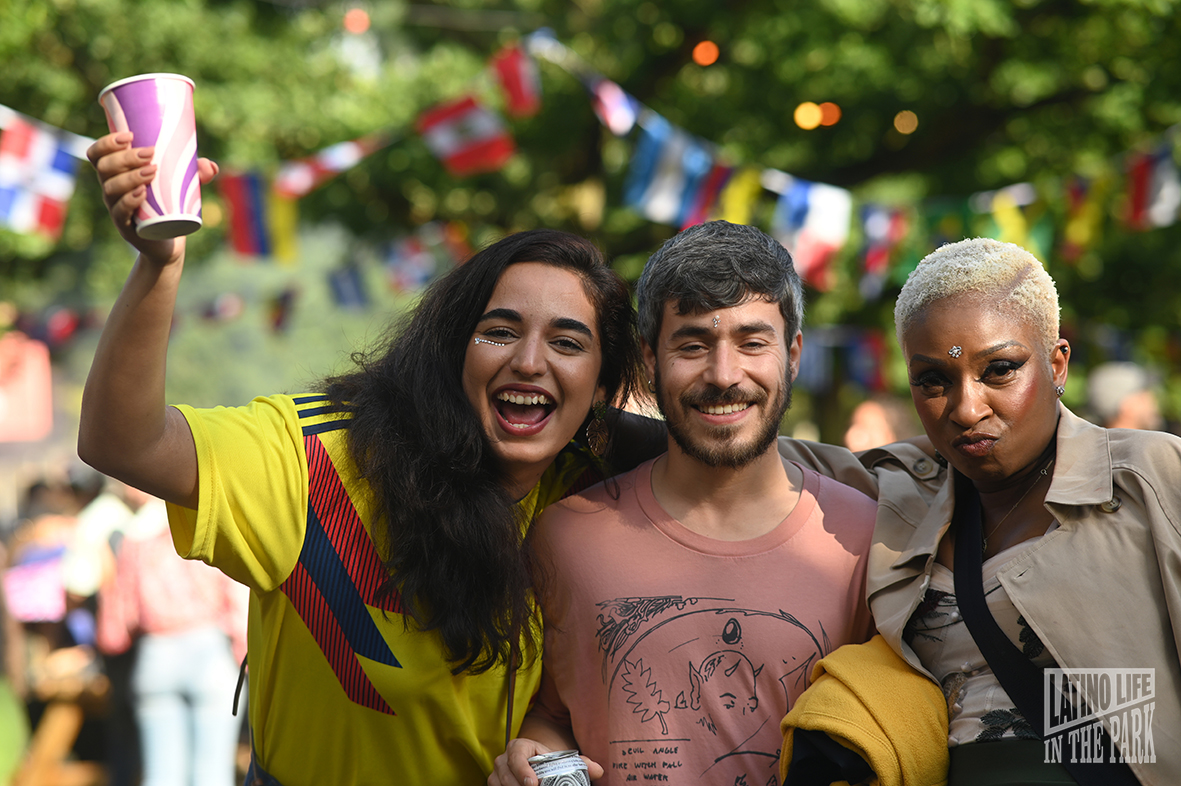
Adelante Compañeros! Forward through new confidence
Where we do come together, however, is on the dance floors, at Latin music concerts and festivals where barriers are broken. Whether its Spaniards requesting reggaetón in the nightclubs or festivals such as LatinoLife in the Park bringing together rivals within a Latin community, cultural events are where everyone comes together. With Latin music being the most streamed genre in the world, Latin DJs, promoters and music entrepreneurs are gaining the confidence to finally reclaim their cultural narrative back from the English events producers, promoters and DJs who had established themselves as Latin music experts and mouth pieces for Latin culture.
Companies like Candela Records, the UK's first record label dedicated to UK Latin Urban music, are embracing the For-Us-By-Us (FUBU) mentality, producing music created by young Latinos in the UK. The founders managed to convince Warner music to invest in them.
When Austin Daboh, Executive Vice President of Atlantic Records, mentioned Candela Records and the idea of finding and nurturing UK-Latin talent, to Warner-Atlantic and engineered the deal, “everyone at Atlantic and ADA got excited about shining a spotlight on this incredibly vibrant music scene," he said.
Trenton Harrison-Lewis, Senior Vice President of Warner Music UK, who made the deal happen, added, “we thought it was incredibly important that we help serve what we believe is an under-served community in the UK. Jose Luis and Luciano, who are a proper representation of the Latinos scene in the UK and have their fingers on the pulse. Together we will find incredible new talent that will shine on the global stage.”
Austin and Trenton had been instrumental and putting black British on the mainstream map and had the vision to do the same with British Latino music. At last Latinos are gaining confidence to partner with the people they have shared experiences with, and these new solidarity and allegiences are making them stronger. "I grew up with Africans, Jamaicans, Arabs, Muslims," says Candela co-founder Luciano Pinto. "They understand our music. They are our audience and our champions."
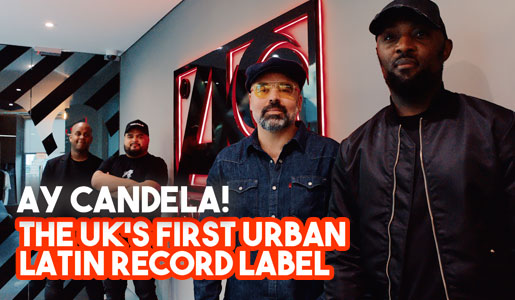
Resilience and Hope
Final the powers that be are beginning to recognise the value of the Latin community in the UK. The Latin community in Seven Sisters spent 5 years in a battle with Haringey council and Granger Property over the regeneration plans for their indoor market...and won! Latin Elephant is fighting to do the same in South London.
For the first time ever, two Latin run organisations became National Portfolio Organisations (NPO), selected to be part of the UK government's ‘most varied and ambitious’ portfolio of NPOs s to “drive growth in our world leading creative industries, ” joining iconic institutions such as the Royal Shakespeare Company and The Royal Opera House.
And so, there is lots to celebrate, but much much more more to achieve. This months in the US, marks Hispanic Heritage Month, a 5 week celebration of the Spanish and Portuguese-speaking world. In the UK, a group of activists started El Mes amigo, or Amigo month, a festival or celebration of the contribution of around 5 million people living in the UK who have Hispanic and Lusophone heritage. Despite video from London Mayor Sadiq Khan, the project hasn't gained much traction as yet. But it's worth taking a step back and looking how far we've come. With our revolutionary spirit, there is nothing stopping Latinos in the UK.


